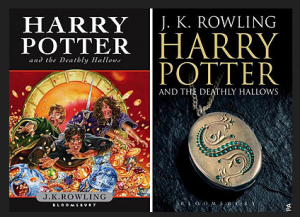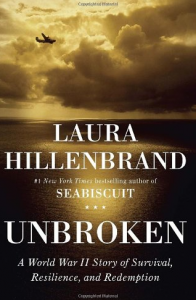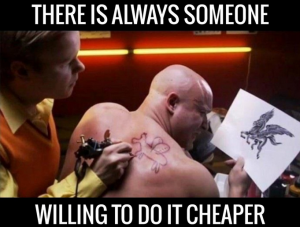Often authors ask, “Why am I not selling any books?” after spending time, and often money, on pushing their books like crazy on self-publishing them. Here, we take a look at why that happens, and what you can do about it if you are in that exact situation.
1. Niche means niche, and if it’s niche…
Issue: A niche subject has a finite market, whatever you do.
Solution: Think of a new angle to market your book to a broader market. But accept that if you wrote a book about a real niche interest, such as coin collecting, corset making, or keeping a pet tortoise, you’ll only be selling to real fans of these hobbies.

A celebrity foreword by Carl Sagan helped Hawking’s book
Some examples of books that seemed niche, but went broader due to clever marketing include:
Stephen Hawking – A Brief History of Time
Angle – Book on astrophysics written by a man who has MN disease struck a note with the world, struggling with his own existence in time and space.
Marketing – This book was helped no end by a foreword by TV celebrity astronomer, Carl Sagan, at the pinnacle of his own celebrity, calling Hawking Newton’s successor.
The Black Swan – Nassim Nicolas Taleb
Angle – Everyone wanted to know about probability risk after 9/11 – and how it may help you get rich quick. The phrase “f*ck off money” became popular from this book.
Marketing – Be prepared for anything, and make your “f*ck off money” in a post-9/11 world.

Adult and child book covers for Harry Potter
Harry Potter series – JK Rowling
Angle – The idea that reality actually has magic woven underneath in plain sight struck a chord with everyone, not just young fantasy readers. Adults reading the book to their kids got hooked on the universal messages and style.
Marketing- Design. First sold for kids, a new more “adult-friendly” cover meant everyone could read these books on the train without shame.
Moby-Dick – Melville
Angle – The book is a classic example of a lost time in American history
Marketing – Timing, awareness, and editing. This book, that seemed to aim at American men interested in marine adventure, had scathing reviews, with one problem that since the UK edition omitted the epilogue, British reviewers read a book with a first-person narrator who apparently did not survive to tell the tale! Timing was also to blame, with interest in sea-faring waning in the US, in goldrush-frenzied America. The book ultimately saw a renaissance thanks to many scholars (including DH Lawrence) picking it up as an example of American Romanticism, and sales picked up after The Modern Library printed it in 1926. You could say professional reviews saved the book!
2. Your cover doesn’t cut it
Issue: Why didn’t you get a professional book cover after all that work? Beats me. It’s like setting up a beautiful designer-decorated store and then boarding it up with old newspapers. You’re not a professional designer, so whatever looks good to you may be under par, and your friends and family won’t have the heart to be honest.
Solution: Uh, get a proper book cover. It’s worth it. Use one of the best services out there such as 99Designs or CreativIndie to get a really good boost into the thumbnail sized beauties of the bestseller lists. Have a look at Derek Murphy’s Before and After gallery to get an idea of what a difference a really great cover can make.
Just remember: There’s always someone willing to do it cheaper…but this is one part of your book you shouldn’t go cheap with.
3. Your marketing copy doesn’t cut it
Issue: If your blurb is too vague, or doesn’t call to people, it’s doubtful it will sell.
Solution: Use strong adjectives to pull people in – these are known as “intensifiers”.
What are they?
Here’s a list that “intensifies” adjectives for use in copy:
- Scary – Terrifying
- Memorable – Unforgettable
- Great – Amazing
- Awful – Horrifying
- Unusual – Exceptional
- Funny – Hilarious
- Excellent – Mindblowing
- Sad – Heartbreaking
- Evil – Demonic, heinous
- Brave – Heroic
- Nice – Wonderful
- Good-looking – Gorgeous
- Broken (apart) – Shattered, torn apart
- Sexy – Erotic
Let’s try some of these words in copy:
The sad tale of a brave girl living through an awful experience in New York.
becomes:
The heartbreaking tale of an heroic girl living through a horrifying experience in New York.
The scary story of trolls meeting evil gnomes in a nice land broken by unusual magical events.
becomes:
The terrifying story of trolls meeting demonic gnomes in a wonderful land shattered by exceptional magical events.
A good-looking young couple from Oregon broken apart by evil deeds in this sexy crime thriller
becomes:
A gorgeous young couple from Oregon ripped apart by heinous deeds in this erotic crime thriller

Is your life as interesting as someone like Zamperini?
4. It’s All About You
Issue: Have you published a book about your own life? Is your memoir about what you did in your incredibly interesting career? Do you talk about members of your family and friends in anecdotes?
Solution: You may have a touch of the mememe’s. As self-publishing becomes more popular, it’s easy to think in old age that you’d better get your life down on paper for the masses. Unfortunately, unless you are someone with a remarkable story to tell, such as Olympian-turned aircrash survivor-turned Japanese POW Louis Zamperini (Unbroken), there is little about your life that’s going to entertain on a big scale (even Zamperini wasn’t vain enough to think he could write the book himself – Laura Hillenbrand did it for him). Best let this die down quietly, and let friends and family buy the copies they fancy.
5. Your book is offensive to others
Issue: Is your book about subjects that turn people off? Rape, animals being hurt, children being hurt, hate crimes won’t sell well if you dont have a solid angle to write about them. If you are writing fiction, why have you decided to go down these routes? Most books about abused women or children are by the victims themselves, and yet many people latch onto the idea of writing these subjects because they see them sell well and get interested in the violence angle. Perhaps you’ve written about Islam, Israel, or have Nazis in your book. Have you written a racist character? Why did you pick this topic? Are you qualified to be writing about these sensitive areas? You may find them interesting, but you will note that most books written on subjects like this that do well are written by survivors or experts.
Solution: There might be nowhere to go with this. If you’ve made the error of naively writing about a sensitive topic, you may have to move on to a new book, and it may be advisable to do so.
6. Your book just isn’t good enough
Issue: Maybe, when all is said and done, the book just doesn’t cut it. Self-publishing means you get to publish whatever you want to publish, but without a gatekeeper such as a publisher to give an honest opinion, the downside is you may not have managed to write a good book.
Solution: Get an editorial review, such as the package we offer at SPR. Not only is an editor able to give you a proper, professional opinion but you’ll get info on viability to market and readability scores etc. so you can go away and work further on your book to get it to a higher standard for market.
Get an Editorial Review | Get Amazon Sales & Reviews | Get Edited | Get Beta Readers | Enter the SPR Book Awards | Other Marketing Services























One more possible reason: No reason at all.
Of all the books that are published, very few become best sellers, and the best sellers aren’t necessarily the best of the books. It takes a specific combination of things for a book to draw a lot of attention, and your book may have 8 out of 10 of the elements in that combination. But with two missing, the book will float along with the rest that don’t get noticed. And for no logical, changeable, identifiable reason whatsoever.
I find, the main reason why GOOD books never become best sellers is simply lack of marketing. When I work hard on marketing my books, they sell very well. And, when I don’t want to spend time and/or money doing so, the sales slow down dramatically. My personal opinion – there are just too many books currently out there and most good books get lost in the pile and never seen by readers. Unfortunately, the result… readers are often overwhelmed by their own To Read piles and most great authors give up too quickly because they don’t have the time or resources to market their books properly.
I have written several books and am also a co-author to a new best seller. The new best seller was released just over a month ago and has over 160 contributing authors…and with that many people spreading the word about it, it didn’t take very long to hit the #1 spot on Amazon. Just another prime example that the more exposure and marketing a book has, the better it does. As authors we need to help each other spread the word about our books.
Through social media (mostly Facebook,Twitter and Pinterest) I often encourage both readers and authors to share their books. I believe that together, we can all help spread the word – and more GOOD books will soon be found by readers. 🙂
This box set currently getting a lot of marketing attention would bear out Christina Scalise. Seven books by seven different female authors all with something in common, strong women protagonists. Both inherently interesting and a viable combination, being promoted by all seven (obviously). I am sure it will greatly boost not merely these books but these authors and their future work. If, like me, your books have nothing in common with any others (even your own ‘others’) no hope of such collaboration. You have little reasons to invite it. Both my published books have won prizes , as have every one of my short stories, but despite attempting every avenue of promotion yet to see any real returns, except for the few 5* reviews from readers. I agree marketing takes dogged dedication and discipline but there may be a time when ‘giving up’ is not cowardice or merely fatigue but intelligence. Judging that moment is the difficulty!
Some books become best sellers without anyone but the author knowing it. Niche books are poised for creative marketing in specialty markets. For instance, a book on cats or dogs when marketed to the makers of cat food or dog food to offer as a premium when the consumer buys a bag of their food could sell tens of thousands of copies (all non-returnable) and never be on the radar of the NY Times. I know one author who sells books through PX’s on military bases across the globe. Uncle Sam buys them (all non-returnable) and stocks them into their stores on bases. That author has sold multiple titles this way and each title has been in five digit quantities. It pays to think outside the box.
I don’t worry about becoming a best-seller. Because let’s face it…out of market novels based on personal dreams isn’t a best-seller to a mass market audience–no matter how good it’s been written. The plain fact of the matter is, I’ll only be getting a scant few readers and nothing else. (Like less than 20 people ‘scant’.)
Now unless I somehow win the lottery and pump money into advertising locally or open my own bookstore down at the mall, I’m not going to be gaining much traction–to say nothing of a real audience.
Online? Most of my experiences as a writer soon to be self-published author for the past 20 years tells me that I don’t have a market online for my books. There’s just not enough interest to be had. Again, nobody really wants to read books based on dreams or fantasies.
So in the long run, all I’ve been doing for the past 27 years is writing for myself and publishing just for myself.
But the plus side to all this is at least I’ll have fun doing it–even if no one else cares enough to read what I have to offer.